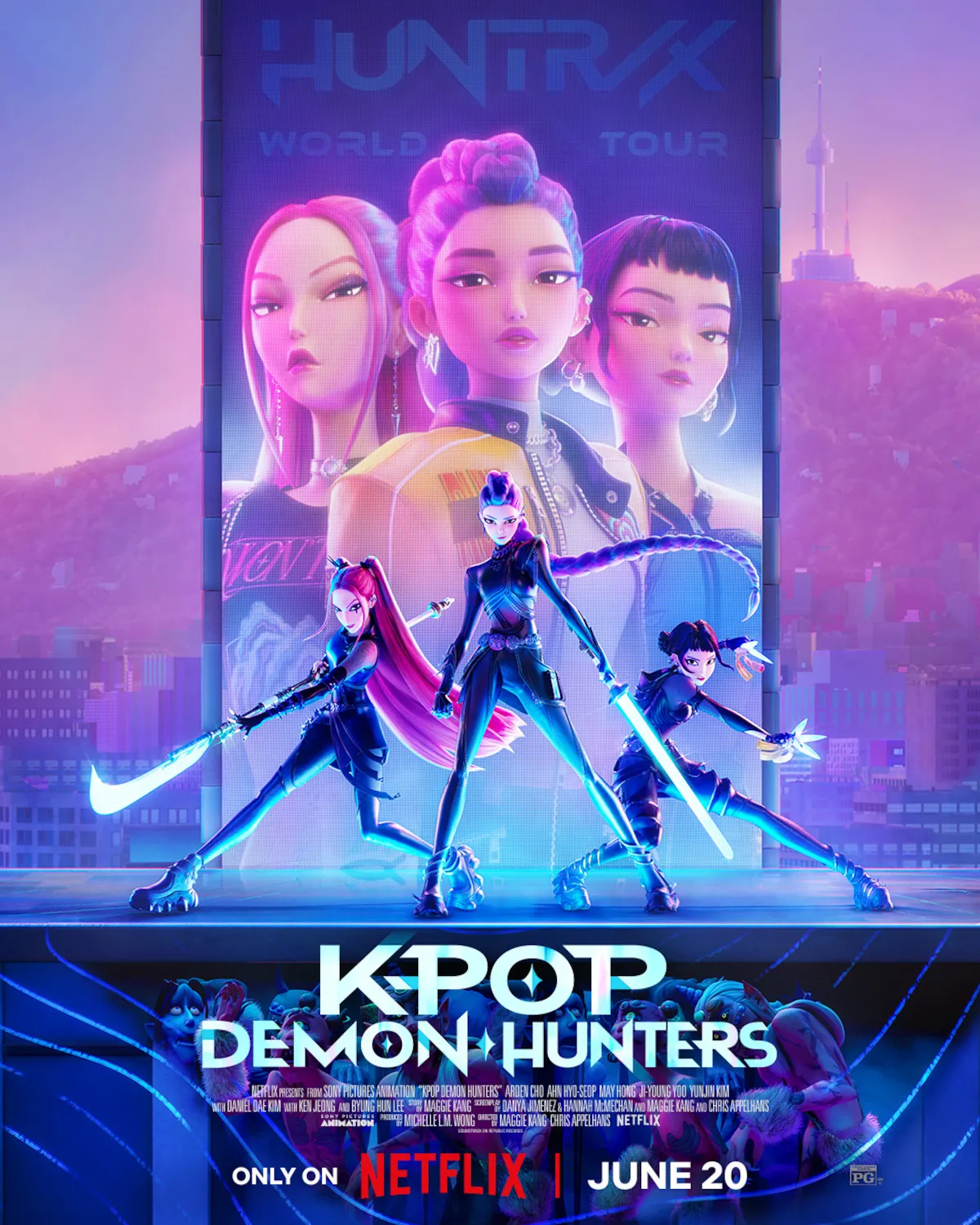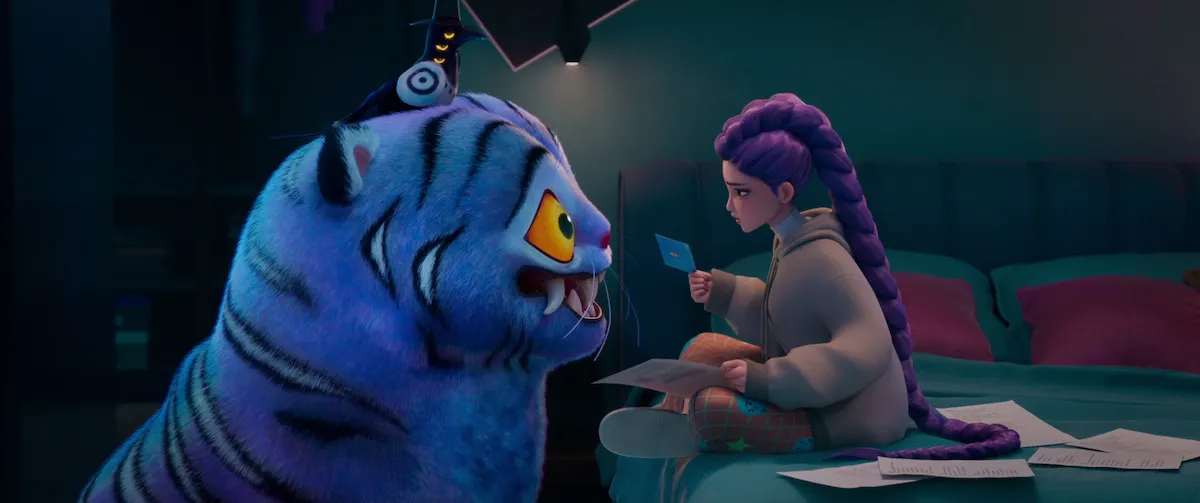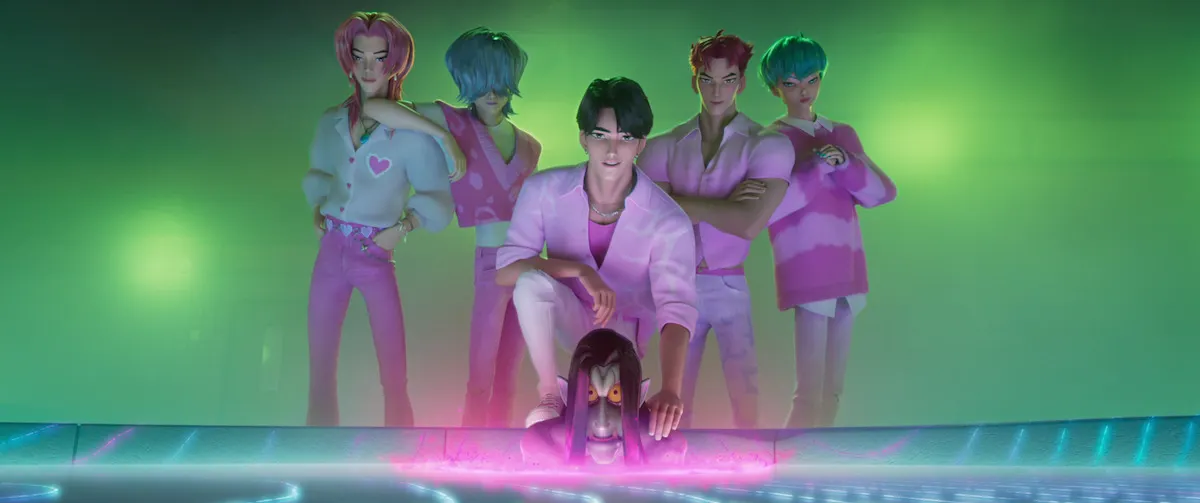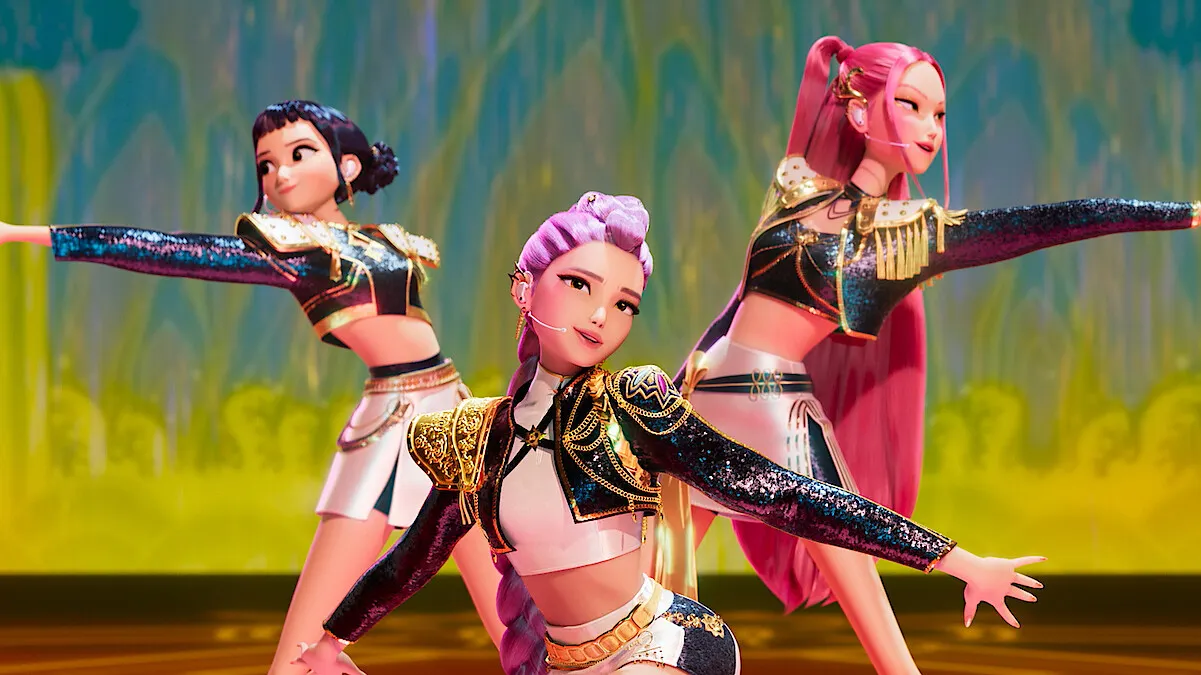Netflix.
The visual spectacle and sonic fervor of K-pop Demon Hunters(2025) marks not only a milestone in pop entertainment but a compelling confluence of tradition, music, and cultural assertion. No longer is global appeal predicated on dilution; this film radiates an unapologetic Korean flair, redefining what it means for a non-Western movie and its music to conquer the world stage.
Netflix.
First and most brilliantly, K-pop Demon Hunters(2025) roots itself in one of Korea's most storied spiritual traditions: 굿 (gut). Traditionally, 굿 is a shamanic ritual performed to exorcise evil spirits or misfortune. With rhythmic chanting and noise that borders on song, almost 99% of these ceremonies are led by female shamans. In the film, this historical role finds a vibrant modern echo as the demon hunters—embodied by K-pop stars—channel the kinetic, cathartic energy of the 굿. The connection isn’t superficial; instead, it’s a conceptual bridge between ancient matriarchal power and contemporary female idols, both commanding and channeling collective energy through music and performance. This doesn't just make for striking action sequences—it grants the shamanic tradition bold new relevance, suggesting that Korea's cultural heritage and modern pop phenomena are not antithetical, but deeply intertwined.
Netflix.
Secondly, the film’s soundtrack is a declaration: K-pop does not need to be “blended in” with mainstream Western pop to feel relevant or catchy. Where earlier works targeting global audiences might feature Korean artists in supporting roles or adapt their styles towards broader pop conventions, K-pop Demon Hunters(2025) flips the script. The music is crafted by top K-pop producers, sung by Korean artists, and delivered in unapologetically Korean idioms—musically and linguistically. Having topped charts globally, with the song "Golden" hitting #2 on Billboard’s Hot 100 on July 29, 2025 (even outpacing Frozen(2013)'s iconic "Let It Go"), the film demonstrates that the world is not just receptive to K-pop—it is hungry for it. I’ve witnessed children, many of whom have no personal heritage tied to Korea, dancing and singing these songs. For them, this isn’t a distant or exotic niche—it’s mainstream, the soundtrack of their childhood.
Netflix.
Finally, and perhaps most significantly, K-pop Demon Hunters(2025) is anchored in Korea itself. In the past, films seeking global success often shifted their settings to America or some ambiguous “nowhere” for accessibility. By contrast, this movie is fiercely local: set unmistakably in Korean locales, bustling with Korean foods like mukbang, side characters who don’t feign American accents, and signs you’d see in Seoul, not in a generic “Asian Town.” It does not mask its identity, but rather celebrates it, showing confidence in the universal appeal of its distinctiveness. The result is a film that feels both authentically Korean and universally approachable—a phenomenon now possible because Korean culture has moved from being perceived as minor or niche to a genuine mainstream force. Korean pop culture is not a “foreign” novelty—it’s become a global standard, a cultural milestone many aspire to.
Netflix.
K-pop Demon Hunters(2025) showcases the thrilling evolution of the Korean wave. By blending shamanic tradition with hyper-modern pop sensibilities, refusing to dilute its music or visuals for international approval, and proudly broadcasting its Korean roots, the film doesn’t just ride the crest of globalization—it sets a new bar for what global culture can be. Korean culture, once considered distant, is now a source of inspiration and joy worldwide—cool, compelling, and here to stay.
07.30 2025





